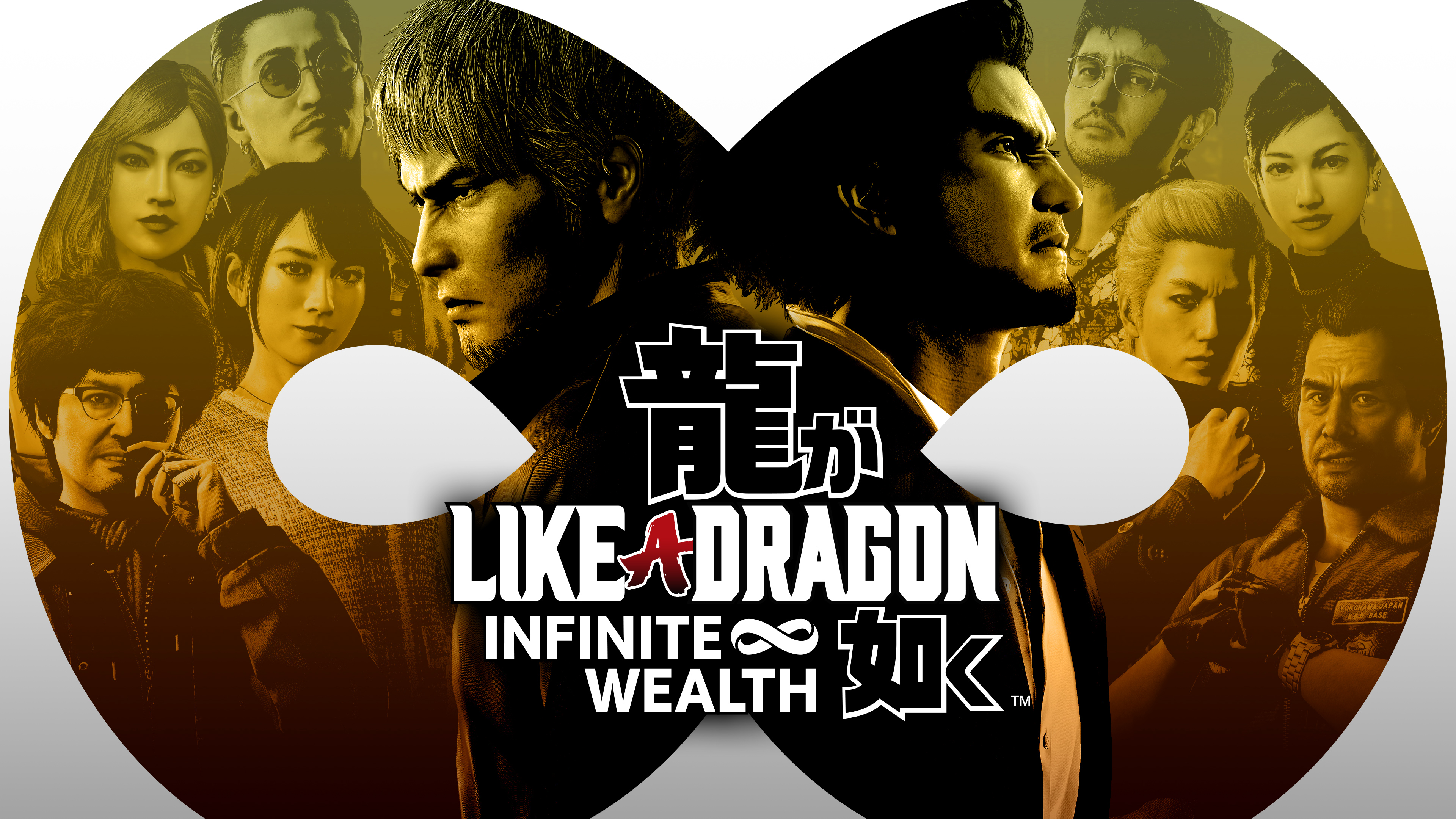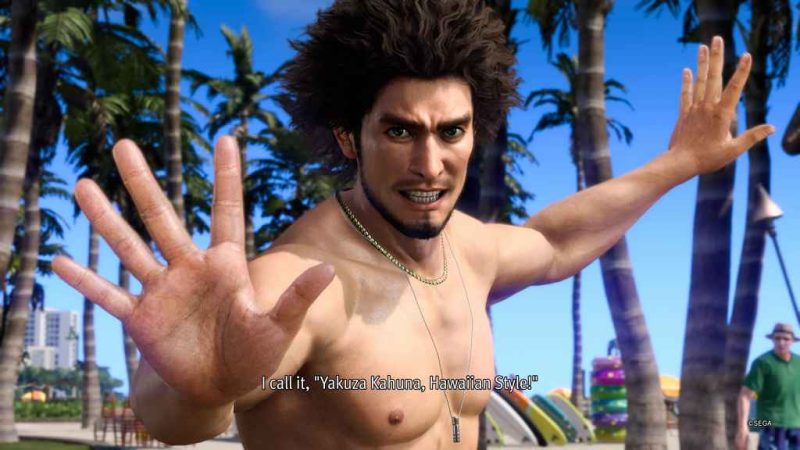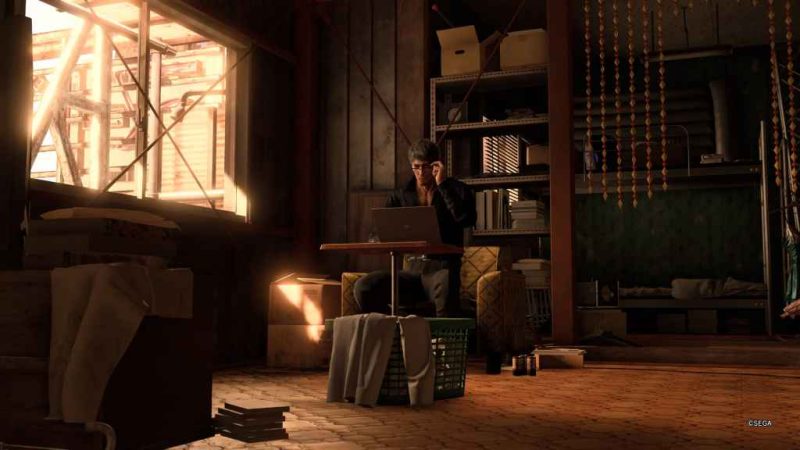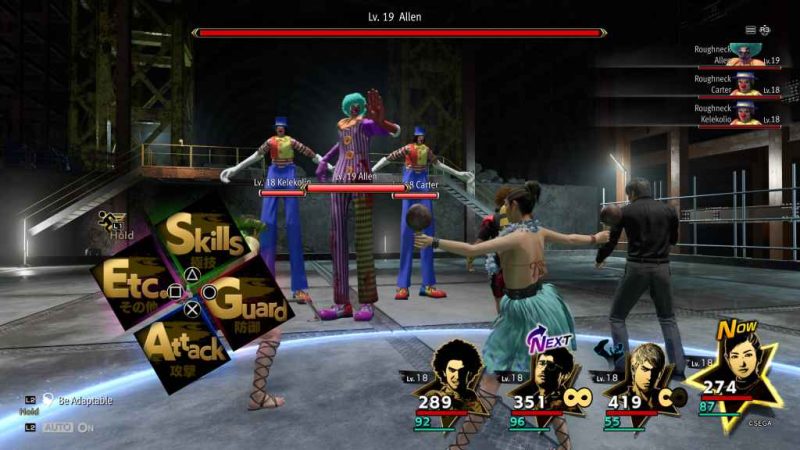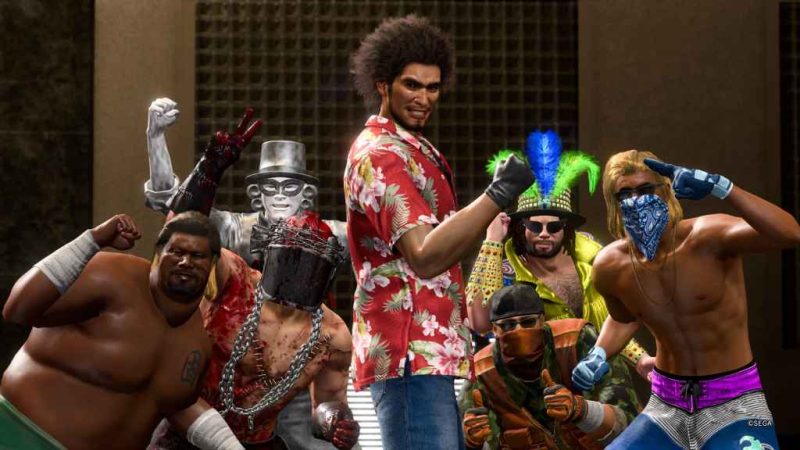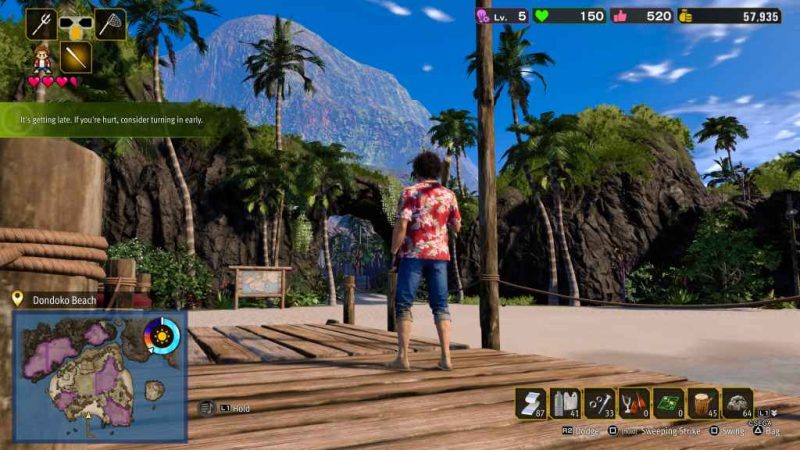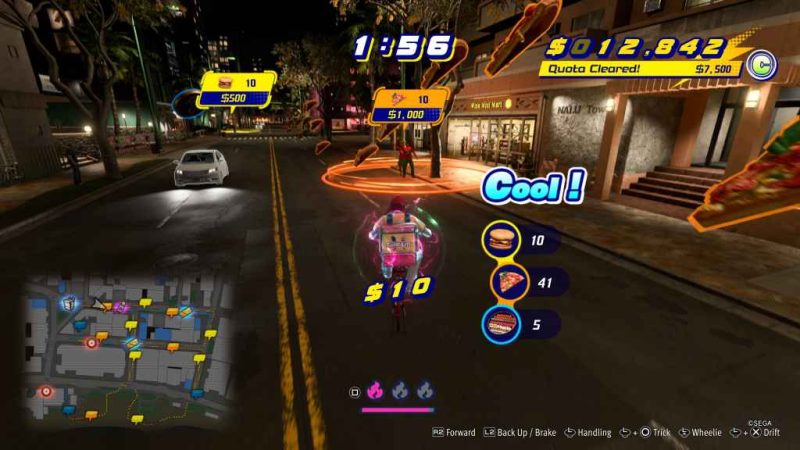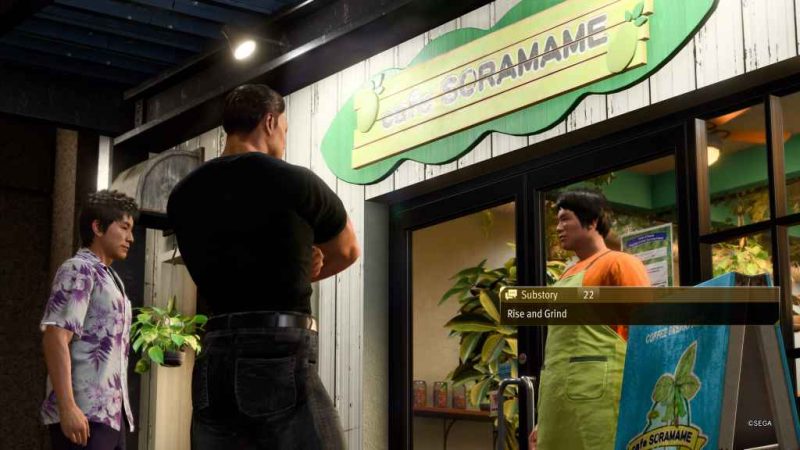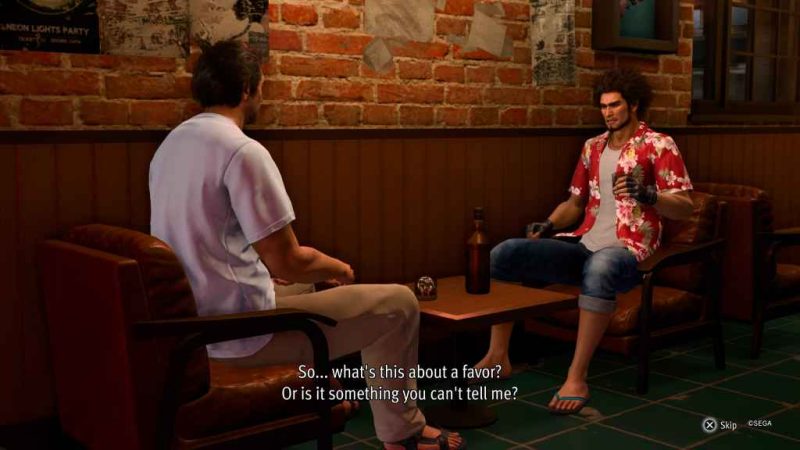Like A Dragon: Infinite Wealth Review (PS5) – Every time I reloaded my save file in Like A Dragon: Infinite Wealth, I was bombarded with activities to do and new opportunities to discover.
It has been a long time since I’ve felt this sense of wonder of excitement from just wandering down a street in an open-world game but Infinite Wealth manages to stuff its locales full of seemingly endless details and side activities.
Continuing the main series of Like A Dragon (previously Yakuza for us in the West), this new entry simultaneously marks a brand new dawn for the iconic series, as well as a bittersweet swansong for one of gaming’s most treasured heroes of all time. Each new corner I turned reminded me why I fell in love with this quirky, offbeat yet deeply emotional series.
Infinite Wealth polishes the newfound RPG foundations of the Like A Dragon series to a dazzling shine and manages to deliver a gut-punching story that mixes some of the highest stakes yet, against one of the most deeply personal stories in the Like A Dragon franchise.
The result is something I will remember for a long time.
Like A Dragon: Infinite Wealth Review (PS5) – A Glorious Step Into A Bold New Direction
New Horizons And New Opportunities
Like A Dragon Infinite Wealth follows in the footsteps of its predecessor and offers the best of both layered and intricate political conflicts, against some of the most bizarre scenarios you could ever hope to see in video games. Ichiban Kasuga takes the helm again in a country-hopping hunt for his lost mother and gets tangled in a conflict far bigger than what it initially seems to be.
This impromptu trip to Honolulu ends up with him crossing paths with the famed Dragon of Dojima as stories begin to intertwine. Quickly after this, characters with all sorts of motivations enter the fray and the plot barely slows down. Once the pieces were in place and started to move, the pace of the plot was breakneck in just the right ways.
A story with arguably the highest stakes yet, I was on the edge of my seat as each twist unfolded across the nearly 65-hour-long campaign.
Kasuga once again makes for a simply phenomenal protagonist and his seemingly endless optimism is really what sets him apart from the weathered protagonists of series past. His relentless talent in seeing the good in quite literally everybody he meets is nothing if not admirable and helps to foster some great dynamics between the main party, both new and old.
Ichiban manages to walk the tightrope of dopey yet endearing and it never felt like I was being taken for a fool.
The moments where he slips up and does something odd are generally far more pleasant than cringe-inducing and are all handled with the earnest sense of a man trying his best to fit into a society to the best of his ability. Everybody needs a Kasuga Ichiban in their life.
Looking Back To Look Forward
That’s only half of the story here though. Kazuma Kiryu makes his grand return to the main stage of the Like A Dragon franchise and does so with impact. While much of the story is primarily focused on hunting down Ichiban’s mother in Hawaii, a significant amount of time is spent with Kiryu in this game.
Kiryu is dealing with his own personal battles in this title and a large focus is put on him reminiscing about his past; from his beginnings in Yakuza 0, all the way up to the present; diligent and loyal fans are rewarded in spades for following the journey of the Dragon of Dojima through every avenue.
While the focus moved inwards, I appreciated the chance to slow down and reflect on the long journey that myself and other fans have been on across this many games.
Like A Dragon is a franchise that rarely plays to the newcomer and this game keeps this tradition going strong. I would sincerely recommend players to catch themselves up on the story so far no matter how they can before jumping into this latest title.
Details that I thought would never surface again came from out of nowhere and sucker-punched me and I would hate for anyone to miss how these stories all come together.
SEGA has given us a story that shows us the future of the Like A Dragon franchise while giving closure to one of its most well-beloved characters, and that’s no small feat.
The dub of this game should also be mentioned, with options for a Japanese, Chinese and English voice track being available for use. Most of my time and my run-through of the main story was completed in the original Japanese voice over, but each dub is for the most part satisfactory and manages to get emotions across with only some small hiccups here and there but landing where it counts.
Getting Down To Business
Following in the footsteps of its predecessor, Like A Dragon: Infinite Wealth primarily takes the form of a turn-based RPG in minute-to-minute gameplay. Thanks to Ichiban’s love of Dragon Quest as a kid and seeing himself as the “hero” of the story, the battles throughout takes the form of a classic RPG.
This excuse opens the door to some of the most ridiculous enemy types that you will see in any video game, period.
Coming from the previous entry, the combat has been polished and adjusted in a handful of significant ways to ensure that the gameplay experience is smooth and that even players who may not be familiar with RPGs can enjoy this title.
The beating heart at the centre of the combat has remained the same, you control a party of 4 distinct characters who you can suit out with different “jobs” or classes and let them cause absolute carnage.
Whilst not every job is returning from Yakuza: Like A Dragon, the addition of jobs from Hawaii and general American culture adds a strong dose of variety to an already strong lineup of potential classes.
Moving to this system has meant that SEGA has been able to unleash themselves creatively and I enjoyed experimenting with all kinds of builds as I tackled harder challenges towards the latter portions of the game. I particularly enjoy the character-specific jobs and the over-the-top abilities that come alongside them.
This is especially true for Kiryu’s so-called “Dragon of Dojima” job, that allows him access to his classic move-set in a new turn-based package, a very nice throwback. (Even breaking out of the turn-based combat, under the right circumstances!)
A huge improvement from the previous title is a far kinder difficulty curve; where the original game would throw significant difficulty spikes out of nowhere, I never found myself needing to go too far out of my way to equip and level my characters to the right level.
Clever inventory management and battling where you can will be easily enough to get you through with a healthy challenge. No grinding here!
More emphasis has been put on positioning and moving around the battlefield to make sure your abilities are as effective as possible and this extra wrinkle added a significant amount to my decision-making. Getting a buff for my party wasn’t as simple as just pressing a button, I had to try and move to make sure as many were in the area of effect as possible.
The same goes for group attacks, where I had to aim where I wanted to attack.
While I did find occasional frustrations in my enemies moving around by themselves before I could pull off a thought-out move, combat was never punishing enough that I found myself losing a combat encounter. I could easily rework my strategies on the fly to deal with things as fast as possible.
As always, the soundtrack punctuates these crazy battles in a bombastic way and fits them like a glove. Heavy electronic remixes help to pump players up for every battle, even when I had to throw myself against battle after battle for experience, I found myself enjoying the sights and sounds of battle.
A Never-Ending Buffet Of Side Content
Also following in the steps of its predecessors, Like A Dragon: Infinite Wealth is stuffed to the brim with content to supplement the critical path. The amount of modes on show here is truly staggering and speaks to a development team that has the ambition and drive to create worlds that feel truly lived in.
Outside of the main story and party-building mechanics, there are basically whole other games hidden away. These come in two different flavours and each one takes a healthy amount of inspiration from other popular titles in the modern gaming space.
First up is the return of the Sujimon from Yakuza: Like A Dragon; this minigame has graduated from a simple collect-a-thon to a full-on RPG within an RPG. Clearly paying homage to Pokemon, Ichiban can recruit various so-called “Sujimon” as he battles people around Honolulu.
After you beat a random encounter, there’s a chance you may be able to persuade them to join your team, with a humorous minigame that asks you to get on your knees and borderline beg them to join you.
After building up your team, you can challenge other Sujimon trainers around the world and slowly grow stronger, and become the best (like no one ever was.). This was a fun distraction from the main story that I found myself dipping my toes into as it came up.
The plot surrounding the Sujimon is completely absurd but was enjoyable as I made my way through, and even held some exciting benefits for me in the main story as I made my way through, which I would be remiss to spoil.
The other meaty game mode on offer here comes in the form of Dondoko Island, a clear love letter to a certain other life simulator game set on an island released in the last few years. This mode sees Ichiban trying to restore a ruined island resort to its former popularity as a tourist hotspot.
In doing so, Infinite Wealth starts indulging in crafting mechanics and other life-sim mechanics.
There are light combat mechanics too as you’re set to protect the island from an onslaught of enemies, though these encounters are rarely more than a distraction and never pose a real challenge. For players who want to enjoy a relaxing time, these combat challenges won’t get in the way of that.
There’s an astonishing amount of depth put into this completely optional mode and I found myself sinking far more time into it than I initially expected to. I took the time to try and make an island resort that I would like to go to and it really lets you go to town with what you want to do.
Over time, you’re given the opportunity to invite familiar characters to the island and spend time with friends that you’ve made throughout the game, and was a great way to de-stress after a particularly long stretch of story missions.
The Fun Never Stops
That isn’t to say anything of the other activities on show here. Mainstays like the arcades, karaoke, gambling and other board games are all present and accounted for and are each as fun as they always are. Karaoke has seen a huge boost in the amount of available songs, with every party member having their chance to take to the stage.
Familiar songs make their return alongside some brilliant new tunes
Other new offerings include a dating app minigame for Ichiban as he tries to learn the ins and outs of a newly digital world. Designing a profile for Ichiban to try and impress potential suitors was a hilarious treat that I enjoyed messing around with.
How about a Crazy Taxi-inspired pizza delivery game? Just when I think this game might have shown all the tricks it possibly can, something else comes out from around the next corner to surprise me.
While not every minigame and side activity made its mark on me, there were more than enough other activities for me to sink my teeth into that I never found myself running dry of activities to do across Hawaii and Japan.
The auto-generating multi-leveled dungeons across the game were a particular weak point, with very similar visuals and repetitive combat encounters, alongside clunky navigation. A rare slip in an otherwise wonderful array.
Ichiban and co. are free to explore a huge swathe of Honolulu as the biggest hub world featured in an RGG Studio game yet. Each street is packed full of detail that feels well-researched and well-realised and creates a strong sense of the tropics.
The party also return to locations from the rest of the series, with Ijincho and Kamurocho returning to set the stage for familiar sights and stories to be revisited.
As always, returning to familiar areas and noticing small changes is one of the biggest pleasures in the Like A Dragon series and this is even more true for this title, as Kiryu reminisces on times gone by, with some really surprising references.
Story After Story
Minigames and activities are largely locked behind various sub-stories spread throughout the various hubs you explore and they reach the absurd heights of previous entries and then some. Compared to the stoic Kiryu coming across bizarre scenarios and navigating them with a slightly bemused poise, Ichiban is far more of a wild card when it comes to the people he encounters.
These were another layer on top of an already stuffed game and each one I came across had a unique twist that helped to break up the pace of the main story. From budding movie directors to dates gone wrong and restaurants in need of extra staff, these absurd scenarios always seem to find Ichiban.
Kiryu’s main slab of side-content emerges in the “Bucket List”, a series of bitesize quests that see Kiryu returning to his stomping grounds and experiencing the things that he might have neglected in his life so far – hence the name, “Bucket list”.
These side stories generally take a step down from the typical and take a bit more of a grounded slow approach; this angle was greatly appreciated and will resonate with longtime fans of Kiryu’s journeys.
In its endless pursuit of featuring every genre it possibly can, there are also light social simulator elements sprinkled in as you explore the stories of your party members, who each have their own issues going on.
There’s a reminder here that the story of these games is far greater than one person and gives a strong impression of the series in the future. Kiryu’s journey was very much a solo one – while he had friends along the way, it was always him putting his life on the line.
Under Ichiban, Like A Dragon has become a far more team-based approach, and I love every part of it. What’s a journey if you can’t share it with friends? Like A Dragon: Infinite Wealth is a game all about learning to work alongside the people around you for a bigger goal, not everyone is a titan who can do things by themselves, and even the titans who could do that, need help sometimes.
While we might not be able to relate to the world-saving shenanigans of Ichiban Kasuga, we can all relate to needing a friend to lean on and someone to help pick ourselves up off the floor.
Like A Dragon: Infinite Wealth is available on PS5 and PS4 on January 26, 2024.
Review code generously provided by publisher.
Like a Dragon: Infinite Wealth Guides:
